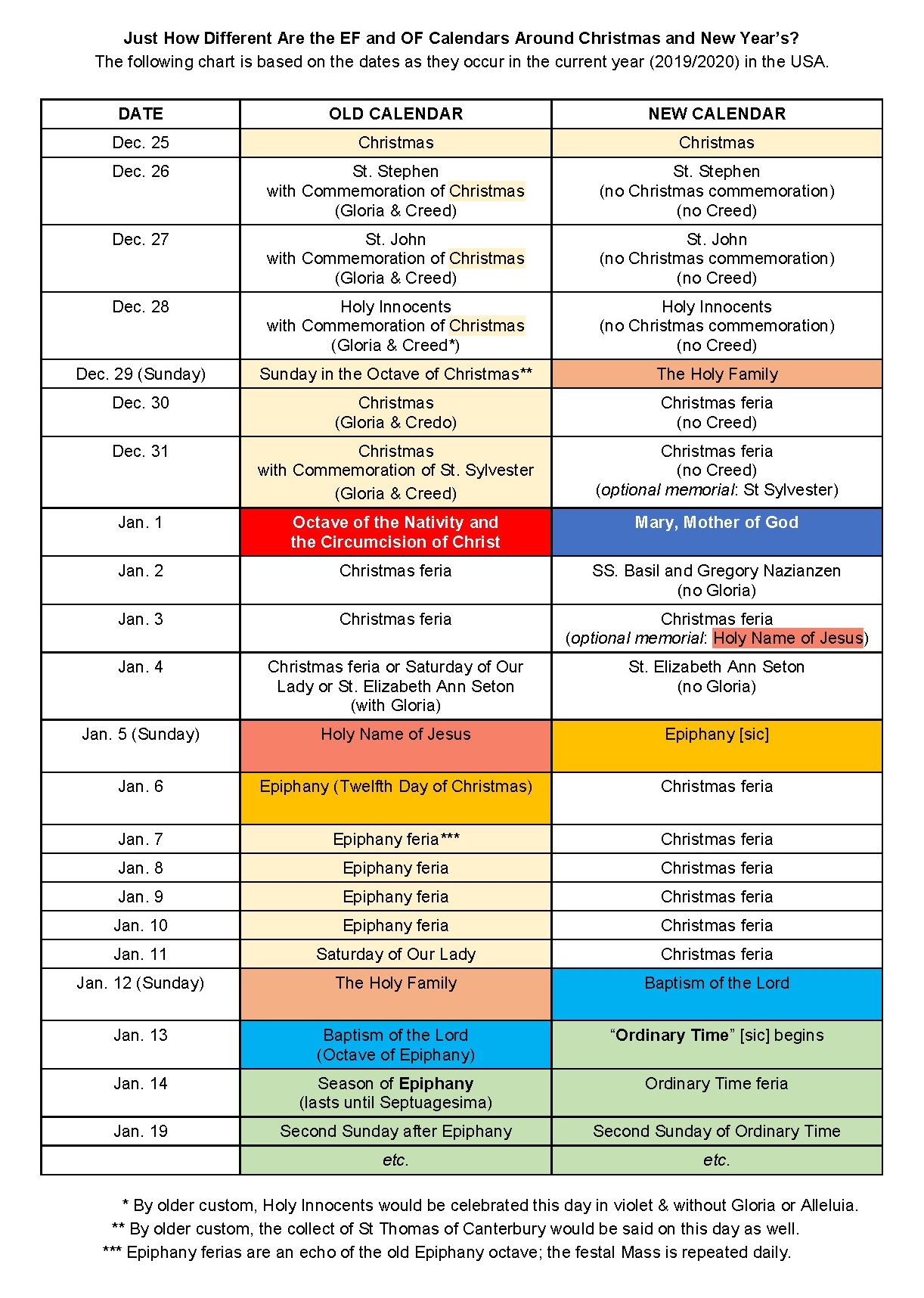

![]()
under the patronage of St Joseph and St Dominic
By the rivers of Babylon there
we sat and wept, remembering Zion;
on the poplars that grew there we hung up our harps. . . Ps 136

 |
under the patronage of St Joseph and St Dominic By the rivers of Babylon there
we sat and wept, remembering Zion; |

|
|
|
THE NOVUS ORDO’S TREATMENT OF CHRISTMAS One thing that exasperated me when I
used to attend Mass and recite the Divine Office in the Ordinary
Form was its cavalier treatment of the Christmas season. I wrote
recently to Dr Peter Kwasniewski and invited him to let the
Catholic world have a paper on the topic. He sent me a schema he
had prepared for the season just past posted at the end of this
article. The reader might care to peruse it before considering
what follows. As one commentator has remarked, the promoters of
the Novus Ordo seem to subscribe to the view shared by the retail
world that the Christmas season ends with Christmas Day. The
reader will note in particular the studied lack of commemorations
of the Christmas season and the absence of Gloria and Creed
throughout the Octave in the new rite. A major element of
dysfunction is the rushing of the feast of the Holy Family which
should never precede the Epiphany.
The liturgy always used combine, in a single theme, three events: the Epiphany, the Baptism of the Lord and the celebration of the miracle at Cana, but it did so with discretion, separating the time of their celebration to reflect the great separation in time of the three events. The Novus Ordo jumbles them together to the harm of each and the detriment of Christmas season and the Epiphany. The Epistle and Gospel readings in the new rite for the season are out of kilter. It is as if the promoters of the Novus Ordo, driven by the imperative to get the faithful studying as much of the Old and New Testaments as possible in the two year/three year cycles had to hustle lest they fall behind schedule. Consider the Epistle readings specified for 2nd to the 12th January, extracts from St John’s First Letter. Splendid in content; just inappropriate. Consider the Gospel passages for the same period, taken largely from St John; appropriate for the period leading up to Easter perhaps; completely inappropriate for the Christmas/Epiphany seasons. Then there is the submersion of the feast of St Thomas a’Becket. When one thinks of the immense sacrilege committed by the arch-Protestant Henry Tudor (Henry VIII), against the remains and the tomb of the great Archbishop of Canterbury because he had dared resist the secular power in the person of Henry II and undergo martyrdom in defence of Christ and His Church, his feast should never be overlooked. Unfortunately, St Thomas joins dozens of other saints throughout the liturgical year to be treated dismissively in the Novus Ordo. All of this provides yet another motive for the faithful to return to the Usus Antiquior, the ‘extraordinary form’ of the Mass and its adherence to the Church’s ancient calendar for the liturgical year. Michael Baker January 19th—Second Sunday after the Epiphany (Extraordinary Form) Second Sunday of Ordinary Time (Ordinary Form) 
|